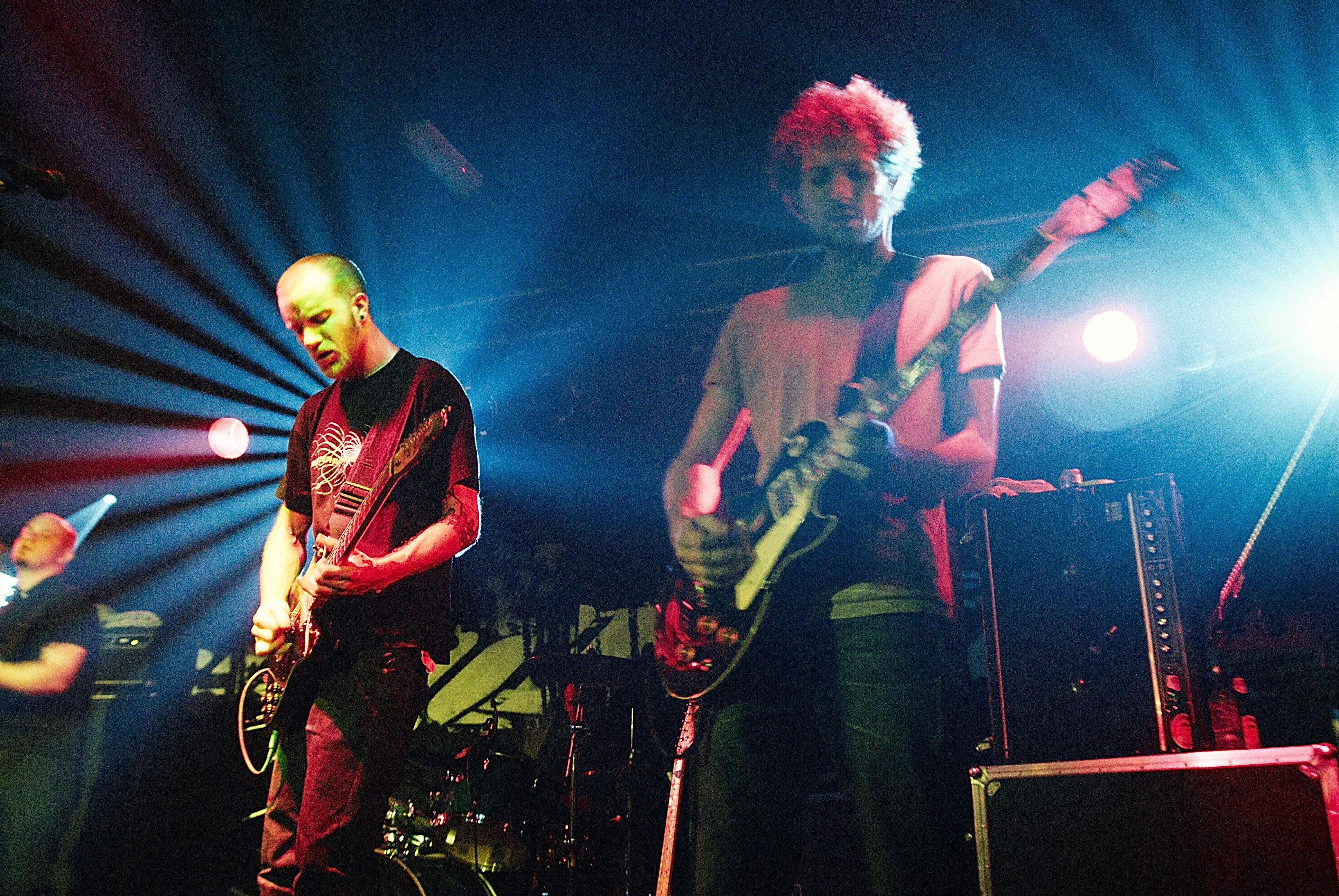Isis' Oceanic at 20: the post-metal masterpiece which re-defined 'heavy' music
Released on September 16, 2002, Isis' second album, Oceanic, gave metal a new template and a new vocabulary

Select the newsletters you’d like to receive. Then, add your email to sign up.
You are now subscribed
Your newsletter sign-up was successful
Want to add more newsletters?

Every Friday
Louder
Louder’s weekly newsletter is jam-packed with the team’s personal highlights from the last seven days, including features, breaking news, reviews and tons of juicy exclusives from the world of alternative music.

Every Friday
Classic Rock
The Classic Rock newsletter is an essential read for the discerning rock fan. Every week we bring you the news, reviews and the very best features and interviews from our extensive archive. Written by rock fans for rock fans.

Every Friday
Metal Hammer
For the last four decades Metal Hammer has been the world’s greatest metal magazine. Created by metalheads for metalheads, ‘Hammer takes you behind the scenes, closer to the action, and nearer to the bands that you love the most.

Every Friday
Prog
The Prog newsletter brings you the very best of Prog Magazine and our website, every Friday. We'll deliver you the very latest news from the Prog universe, informative features and archive material from Prog’s impressive vault.
For many people, their introduction to Isis came courtesy of a smattering of national news outlets reporting that the decidedly heavy, but equally difficult-to-define, Boston quintet were being mistaken online for the Islamic State of Iraq and Syria.
For the avoidance of doubt then, this Isis were neither a jihadist group nor an Egyptian goddess, but one of the most curious and well-regarded underground bands of the early 20th century. And the record that made their reputation was their classic second album, Oceanic, their first release on Faith No More frontman Mike Patton’s Ipecac label, which emerged on September 16, 2002,
Led by guitarist/vocalist Aaron Turner, Isis fit the profile of countless alt.metal bands of the time, all black T-shirts and reticent interview quotes, their members coming together after various scene bands either fell apart or failed to hold their interest.
By contrast, Oceanic captured widespread attention and acclaim from the moment it was released. Fans of hardcore punk, metal, sludge and shoegaze rejoiced at finding an album which wove the four disparate styles together with intent. While far from easy listening, there is a sense that Turner and his bandmates had given serious thought as to what they’d like to differently here, for maximum immersion . For every intense, chugging riff and hollered vocal, there are lengthy, tastefully-structured instrumental passages and moments of beautiful tranquillity, not least on the three-minute, three-second Maritime, by some distance one of the shortest songs on the eight-track, 63-minute album.
Quizzed about his band's influences in early interviews, Turner frequently named Glasgow post-rock icons Mogwai alongside Godflesh, the industrial slow-burn started by Justin Broadrick post-Napalm Death. Comparisons with Neurosis and Tool were also inescapable, but Oceanic bears the hallmarks (watermark?) of a group aware that 'heavy' is an attitude as much as a sound.
The group's collaboration with two female vocalists, Maria Christopher and Ayal Naor, both from the band 27, on the album’s careful but caustic opener The Beginning And The End and later on the shimmering Weight, is further proof of Isis’ willingness to shift the paradigm, in this case by turning down the reverb in a male-dominated echo chamber.
For years, Aaron Turner refused to be drawn on the 'meaning' of Oceanic, likening it to a painting one might view and absorb, without needing to know the artist's exact inspirations and intentions. All one could decipher from his lyrics was a sense that this narrative pivoted around a tormented soul figuratively, and perhaps literally, lost at sea. In a 2007 interview with Neurosis' Scott Kelly, Turner admitted that he had very purposefully declined to open up on the album's subject matter, as he "hadn't felt entirely comfortable verbalizing it" - this was not an era when musicians reared in the underground community talked openly about their anxieties and their existential dread - but then revealed the 'jist' of the story.
As he explains it, the narrative concerns a man who lives the greater share of his life "in emotional seclusion" until he meets a woman he regards as a soulmate, who he feels completes him, and in doing so, he begins to view the world in a new, more positive, manner... for a time. His happiness is crushed however when he comes to discover that the love of his life has been simultaneously engaged in a long-term incestuous relationship with her brother. Following this realisation, tormented by thoughts that he has given himself entirely to a partnership which was a lie, the man decides to end his life by drowning himself in the ocean, in the belief that only then can he attain fulfilment.
And... breathe...
A stunning progression from Isis’ 2000 debut album, Celestial, Oceanic signalled Isis' determination to shake off the tropes of late-90s East Coast hardcore and create a new sound and vocabulary for their art, similar to the attitude which led former members of Botch and Kill Sadie to retool as These Arms Are Snakes around the same period. But with all due respect, Isis’ creation of a break in the heavy music timeline was more pronounced and long-lasting. Cult Of Luna and Russian Circles are just two of the bands who have drawn inspiration from their outsider art.
The latest news, features and interviews direct to your inbox, from the global home of alternative music.
Isis, themselves, called it quits in 2010, signing off with a split release with another of their long-time influences, Melvins. And while it would be remiss to neglect their other musical triumphs, not least Panopticon, the artfully claustrophobic sequel to Oceanic’s elemental expanse, it has been their second album that has endured down the years, with a remix album released in 2004 and a whole-album live performance of the original songs taking place in London in 2006, later self-released in 2009 as the Live V album.
“I think that by the time we recorded Oceanic we had become our own band,” Turner told Brooklyn Vegan on the eve of their split. “It was the first record that we had written with what became the permanent line-up. With Oceanic, people felt more comfortable with expressing their ideas and working together. That was, in a lot of ways, a point of solidification for us.”
It’s also become their legacy. Its creators might have since dispersed in different directions, working on myriad other projects, but Oceanic remains a rip-tide of a record, with its own unique, irresistible pull.
A long-time contributor to Kerrang! and feature writer for Noisey, Fightland and more, punk rock lifer Alistair Lawrence wrote the acclaimed Abbey Road: The Best Studio in the World in 2012. Hopefully Ridley Scott will forgive him for accidentally blanking him in one of the studio’s hallways, should they ever meet again.
